
SUbText E-Newsletter Winter 2021
In this Issue
Department News
Good News
Welcome from Department Chair Charles Tung
By Dr. Charles Tung, Chair
Hello, alumni and friends of the English Department!
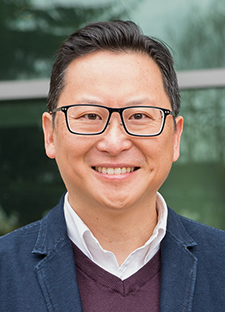
I feel grateful to be a part of this strong and good community, and I hope you have fond memories of your time with us. I was in conversation recently with Carlito Umali and Kahlia Kéita, class of 2008, because they have been thinking about the role of the SU English Department and the humanities in their individual journeys, and in gratitude they have started a fundraising campaign to support students of color in English. I’m so grateful to them. You can read their inspiring bios and interview below. Carlito and Kahlia are asking for 15 donations of $100 or more during the 24 hours of Seattle U Gives, in order to match their $1,500 gift — please help them and us by donating to their campaign, where you’ll find the English Department Fund in a dropdown list on Feb. 25. If you sign up on this page to become a Social Ambassador for Seattle U Gives to encourage people in your SU network to give back, please tag us on Facebook or Twitter! In addition to Carlito’s and Kahlia’s SU Gives campaign, you can support the English Department in general by making a donation via the College of Arts & Sciences Giving Page—specify the English Program Fund in the dropdown menu, and leave me a note in the comments! Any amount you give is meaningful to us and to our students! I will let you know the ways in which your donation supports our students and faculty. These gifts have helped fund trips to undergraduate research conferences, the presentation of creative work, professional formation events, student-faculty research (such as the panel at the Native American and Indigenous Studies Conference that Dr. Roberts invited two students to present on), and textbook purchases.
Here's a quick overview of our 2019-20 academic year and the wide array of your professors’, students’, and alumni’s accomplishments in literary studies and creative writing, which you can read about below. We warmly welcomed our new colleagues: Dr. Carlyn Ferrari, a specialist in African American literature, who just started teaching with us this Fall 2020; Dr. Serena Chopra, a specialist in creative writing/poetry, who joined us in 19-20; and Dr. Alex Smith, Assistant Director of the Writing Center, who became a full-time instructor with us last year! Dr. Susan Meyers recounts the exciting visiting writers we hosted and the excellent offerings for our students in our Creative Writing track below, and Dr. Hidy Basta discusses the impact of the pandemic and racial injustice on the practices of writing consultants and their work of supporting all students across campus. Dr. June Johnson-Bube’s report demonstrates the vitality of the Writing Studies program in connecting our students’ writing to the public sphere and their professional formation. Dr. Hannah Tracy and Prof. Tara Roth were the faculty co-editors of yet another excellent issue of the SeattleU Undergraduate Research Journal, and Prof. Juan Reyes was the faculty editor of Fragments—in both of these professionalizing venues, our students gained valuable editorial experience as well as experience in producing scholarly and creative work for publication. Our students won undergrad research prizes as well as the A&S Hickey Award. Dr. Christina Roberts continues to lead the Indigenous Peoples Institute and is also serving as the Associate Director of the Matteo Ricci Institute. Dr. Andrew Tadie retired after 40 years at SU, and Dr. Maria Bullon-Fernandez became an Associate Dean in A&S. Film Studies has become an independent program. The wide array of your professors’, students’, and alumni’s accomplishments in literary studies and creative writing can be found below.
We normally send out our SUbtext newsletter to you at the start of the academic year with reflections on all that has happened the previous year. The impact of the pandemic in the US has affected the lives of our students and faculty members in very serious ways. Unexpectedly, the extra time my colleagues and I gave ourselves for all tasks, including this newsletter, allows me to write a welcome note at the front end of 2021 that is much more hopeful than what I could have written in the fall—following the protests against racial injustice, the death toll of Covid19, the wildfires, the deepening crises in national politics, and all the other challenges associated with 2020 (which you as English and English/CW majors are able to read as present symptoms of deeper historical problems). My colleagues in English confronted these challenges thoughtfully and compassionately, and as a community we drew on our statement of values, composed in the aftermath of the 2016 election, to support our majors and each other. Your professors and I want to hear how you’re doing after this difficult year, how you made it through 2020. Please reach out to us! And if there’s any news you would like to share with your community of SU English and Creative Writing alumni, we’d love to include you in the next SUbtext newsletter—send an email to the English Department or to me!
Ten thousand thanks to Dr. Hilary Hawley and Dr. June Johnson Bube for taking on the task of this newsletter during these difficult times, and thanks to our admin assistant, Shawn Bell! Please follow our news and events through our Seattle U English page on Facebook and our Twitter account.
With best wishes,
Charles Tung
A Warm Welcome and a Fond Farewell
Welcome Dr. Carlyn Ferrari
By Dr. June Johnson Bube
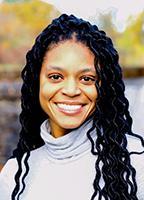 The English Department welcomes a new faculty member, Dr. Carlyn Ferrari, who joins us from her assistant professorship at Adelphi University in New York where she taught for two years after completing her Ph.D. in Afro-American Studies at the University of Massachusetts Amherst. Her other credentials—including Graduate certificates in Advanced Feminist Studies and African Diaspora Studies as well as M.A.s in Afro-American Studies and English—indicate how she will enrich the English Department’s curriculum, as has already been seen in the Modern African American literature as Black Feminist Literature class she taught in Fall 2020 and the seminar on Toni Morrison she will teach Winter 2021. In fact, to listen to Dr. Ferrari talk is to make you want to sign up for her classes right away!
The English Department welcomes a new faculty member, Dr. Carlyn Ferrari, who joins us from her assistant professorship at Adelphi University in New York where she taught for two years after completing her Ph.D. in Afro-American Studies at the University of Massachusetts Amherst. Her other credentials—including Graduate certificates in Advanced Feminist Studies and African Diaspora Studies as well as M.A.s in Afro-American Studies and English—indicate how she will enrich the English Department’s curriculum, as has already been seen in the Modern African American literature as Black Feminist Literature class she taught in Fall 2020 and the seminar on Toni Morrison she will teach Winter 2021. In fact, to listen to Dr. Ferrari talk is to make you want to sign up for her classes right away!
Dr. Ferrari brings to SU students a fascinating background as an archival scholar. Much of her work centers on poet and Civil Rights activist Anne Spencer, a Harlem/New Negro Renaissance poet who kept writing until her death in 1975 and who used her home in Virginia with its beautiful garden as a “black activist think tank.” Dr. Ferrari’s work of recovery on Spencer advances scholarship on the relationship between black women writers and nature. She explains that she “explores the place of the natural world in African American writing,” connecting ecofeminism and African American literature.
Dr. Ferrari’s account of her archival research for her dissertation represents an unnerving, yet inspirational, scholarly adventure. Prepared through historiography courses to do archival work, she nevertheless felt awestruck and overwhelmed when she encountered Anne Spencer’s papers at the University of Virginia, Charlottesville. On her first day in the Spencer collection, Dr. Ferrari found a seemingly random assortment of materials: Spencer, who suffered from arthritis most of her life, wrote (sometimes illegibly) on shoebox tops, napkins, seed packets, and different spots on papers and surfaces. As she began to learn more about Spencer as a woman, mother, and grandmother in respect to what she kept, Dr. Ferrari came to see this ephemera and mostly undated and unpublished poetry as notes as a testament to a life. Spencer’s grandchildren’s drawings exist side by side with drafts of her poetry, which she wrote because it gave her pleasure, not because she had aspirations of fame. Writing was something Spencer did every day, like breathing.
As Anne Spencer’s life and work emerged from her archival study, Spencer’s writing process and the importance of the natural world to her and to Black writing became Dr. Ferrari’s focus, and she felt energized to write about the work of so many black women civil rights activists that goes unrecognized. Spencer taught Dr. Ferrari a bit about the importance of self-preservation and self-care. She feels an affinity with Spencer’s writing process as seen in her own process, writing pieces of her dissertation on post-its. She says that it’s about working out a system that works for you. Dr. Ferrari feels “much more comfortable with a pen and paper.” She sends letters and notes and keeps her doodles and scraps. “I do my best to write about things that are meaningful to me, that I have a personal connection or personal relationship with, not for the sake of publication.”
That said, her active scholarship on Anne Spencer includes a monograph Do Not Separate Her from Her Garden: Anne Spencer’s Ecopoetics and a collection of coedited essays, Her Unfading Garden: Critical Essays for Anne Spencer, forthcoming in Fall 2021. She has also published several articles and essays on Spencer, a book chapter, a recent blog on Black women’s ecologies, and an essay in The Chronicle. She continues to pursue her focus on Black women literary studies and Black environmentalism.
A dedicated teacher, Dr. Ferrari finds teaching challenging but also incredibly rewarding. She says, “I always learn something from my students; they always give me something new to think about.” As a first-generation college student herself, Dr. Ferrari has worked in student support and finds joy in helping students achieve their goals and become independent, complex thinkers and writers. This Fall quarter, she enjoyed seeing students wrestle with big ideas and critically engage with one another. She is designing a number of exciting courses. One is “a course on all things Janet Jackson and all things Prince,” a feminism course on popular culture called From Rhythm Nation to Formation. Another is a course on Black Environmental Literature, including WEB Du Bois’ meditations on the natural world and a history of environmental thought as present and central to Black thinking that theorizes African Americans’ exclusion from many conversations about the environment. For this course, she plans to explore how the color line and double consciousness also meant equal access to engaging with the environment, and how nature has been racialized as a white male space.
Dr. Ferrari enjoys yoga, reading, baking and cooking, especially Caribbean and Greek cuisines or anything spicy. When we return to campus, students might find freshly baked goods around, as Dr. Ferrari likes to cultivate a space where students can sit and connect. She calls the West Coast and Pacific Northwest home, and she has been enjoying the hiking trails in Northern California this past year. She also lists goat videos on YouTube as a pandemic de-stressor; she lived on a goat farm in grad school, so goats have a special place in her heart.
We are so excited to welcome Dr. Ferrari as our colleague (and maybe get a sample of those baked goods)!
Professor Andrew Tadie Retires
By Dr. Sean McDowell
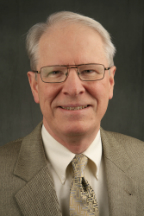 Fall quarter of 2019 witnessed a bittersweet milestone: the retirement of Prof. Andrew Tadie, a beloved member of the English department and of the university community. Born, raised, and educated in the Midwest, where he received a Ph.D. from Saint Louis University in 1972, Prof. Tadie began teaching at Seattle University in 1979. Over the next forty years, he taught generations of students the literature of Greece, Rome, and seventeenth-century England with an eloquence and grace that made his courses memorable. In the lives of many, he has left a permanent mark.
Fall quarter of 2019 witnessed a bittersweet milestone: the retirement of Prof. Andrew Tadie, a beloved member of the English department and of the university community. Born, raised, and educated in the Midwest, where he received a Ph.D. from Saint Louis University in 1972, Prof. Tadie began teaching at Seattle University in 1979. Over the next forty years, he taught generations of students the literature of Greece, Rome, and seventeenth-century England with an eloquence and grace that made his courses memorable. In the lives of many, he has left a permanent mark.
For forty years, Prof. Tadie was a fixture in the English department. He probably holds the record for most hours spent on the fifth floor of Casey Hall. On most days during the week, you would find him in his office, diligently at work, his door open, and a steady stream of classical music wafting into the common area. He would arrive early, often before sunrise, and stay, working and meeting with students, until early evening. He said his schedule allowed him to miss the bulk of rush hour traffic and to make the most of his time for teaching.
Inaugural Washington State Poet and Distinguished Writer-in-Residence Sam Green recalls the many early mornings when he and Prof. Tadie were the only two people in the office: “The two of us were always the first on campus, and nearly always the last to leave,” Green explains. “I remember when I first noticed him in his office with a cigar in his mouth. ‘Andrew,’ I said. ‘Cigars?’ ‘Oh, I just chew on them. The horrible taste helps keep me awake.’”
Often in Winter quarter, the two would arrive independently between five and five-thirty a.m. Over the years, the custodial staff came to expect them, like harbingers of dawn. Green would brew a pot of French-pressed coffee, while Prof. Tadie drank cups of tea. Tea is one of Prof. Tadie’s many passions, the perfect accompaniment to a life of the mind. He regularly grows his own peppermint tea and for many years would craft his own Earl Grey, using Bergamot oil he ordered from abroad. He loved to teach early morning classes to get a jump on his day. The extra time in the office allowed him plenty of opportunity to meet with students and to have impromptu conversations with colleagues.
Prof. Mary-Antoinette Smith recalls those early morning conversations with great fondness:
“As I launched my career as a professor in our department in Fall 1994,” she explains. “I recall that on my first day in the English office Dr. Andrew Tadie happened to be sitting at the department conference table as I raced to my office (Casey 501) to prepare for my first class. I will never forget the warm smile and genteel welcome greeting he offered along with a passing acknowledgement of the early hour. We came to cherish our pre-class early morning chats over the years as two faculty members who typically taught courses during the 8:00am block. To round-out our mornings, I often would return from class to share something noteworthy that might have happened . . .
“My most memorable pedagogical anecdote occurred while teaching my Late-Nineteenth Century British Literature course and reading aloud this selection from John Henry Cardinal Newman’s The Idea of a University (1852): ‘Liberal Education makes not the Christian, not the Catholic, but the gentleman. It is well to be a gentlemen, it is well to have a cultivated intellect, a delicate taste, a candid, equitable, dispassionate mind, a noble and courteous bearing in the conduct of life;—these are the connatural qualities of a large knowledge; they are the objects of a University . . .’
“Suddenly a student screeched, exclaiming, ‘It’s Dr. Tadie!’ and the entire class erupted in gleeful agreement (including me)! Making the most of the moment, I suggested the students close their eyes and picture Dr. Tadie as I re-read the passage (admittedly with a bit of rhetorical flourish).
“What a wonderful experience that was for us all! And ever since, this passage (and the accompanying anecdote) has been one of my favorites to share with others—including Dr. Tadie himself—to whom, of course, I raced back to the department tell of the incident once class was over. He heard the story with humble delight, and every now and again over my nearly 30 years of knowing him, he and I would chuckle fondly over this story while also paying homage to the fact that Newman’s description of the scholar-gentleman has been a revered description of Dr. Tadie in my classes and academic life ever since that memorable day.”
Prof. Tadie passionately believes in the university as Newman defined it. He lived that passion every day during his teaching career. He believes in the power of a liberal education, founded on the great books the world so far has produced. Throughout his career, he gravitated toward program-wide teaching collaborations centered on bringing the best of the humanities to students in the present.
For decades, Prof. Tadie taught Greek and Roman literature in the University Honors Program most often in collaboration with Profs. Jim Risser (Philosophy) and Dave Madsen (History). These three professors played a pivotal role in introducing first-year freshmen to Honors. They knew each other’s courses and teaching so well that seeing them plan for each quarter was a like watching a jazz trio reunite to perform. As Honors Director, I knew I could always count on them to help students successfully transition to college.
The Honors students cared deeply about Prof. Tadie as a professor and a person. “I know that the students loved him,” recalls Honors Program Coordinator Thorne Clayton-Falls. “One time a student came to school dressed as Dr. Tadie for Halloween.”
In the Honors program, Prof. Tadie was famous for his high expectations of students and his fondness for Virgil, Cicero, and Boethius especially. He was always particular about the translations he preferred the students to read. He was devoted to L. R. Lind’s Latin Poetry in Verse Translation from the Beginnings to the Renaissance, a book long out-of-print. And so every year, the program arranged copyright clearance to reprint this book. For the first-year students, the need to pick up this book often occasioned their first (of many) visits to the Honors Office.
Prof. Tadie always expected the most of his students while encouraging their best efforts. This balanced support was readily apparent during the quarterly oral exams.
“Andrew occasionally had a student whose performance throughout the quarter was such that the oral examination was pro forma,” Prof. Madsen recalls. “But rather than waive his time with the student, he would then launch into a series of questions that were every bit as challenging as those he was asking other students. So the student who began with his compliment then had to go to work like no others.”
Right after Fall quarter ended, the first-year professors made a habit of debriefing with each other over lunch about the students’ performances in Honors. They wanted to compare notes and offer suggestions for how students might improve. Prof. Tadie approached these gatherings with his usual style.
“When the first quarter faculty got together to talk about student performances/prospects after grades were already in, Andrew always managed to find an excellent place for lunch,” Prof. Madsen says. “I am still of the opinion that his great find was the culinary program’s dining room at SCCC. White tablecloths, a superb menu, and generous helpings. The farm boy in Andrew came out at such luncheons, and Jim [Risser] and I were the overfull beneficiaries of Andrew’s sleuthing.”
In addition to introducing first-year Honors students to university study, Prof. Tadie performed the same service in the Matteo Ricci College (now the Matteo Ricci Institute). Prof. Edwin Weihe, the first dean of MRC, recalls how Prof. Tadie found a “sense of belonging” in MRC and became one of the college’s earliest and most engaged supporters. His enthusiasm for MRC was unstinting. As with Honors, Prof. Tadie frequently taught one of the crucial first-year courses: HUMT 150: Composition and Thought. Emeritus Professor Bill Taylor taught the second course in this sequence, HUMT 151: Composition and the Arts. For years, these two were a powerful combination, showing students the interrelationships between composition, literature, and the arts.
Prof. Tadie’s fondness for cross-course collaborations and commitment to the cura personalis of students extended into his University Core teaching as well. For many years, he served as Director of the Faith and the Great Ideas program, a track of Core courses designed to provide freshmen with an integrated and coherent liberal education. These courses explored the relationships between faith and reason and provided students with a keener sense of personal freedom and responsibility while fostering a global perspective and a deeper understanding of the natural world. The faculty meetings Prof. Tadie chaired included great conversations about teaching and conviviality in equal measure. They usually ended with a happy hour featuring small glasses of sherry.
“I always admired his kindness and remember him most for that,” says Prof. Donna Teevan (Theology & Religious Studies), a member of the advisory board of Faith & the Great Ideas. “But I understand that he had a good sense of humor too.” As evidence of the latter, she cites a mock interview Prof. Tadie did with former student and longtime SU community member Mike Mullen in 2010: Andrew Tadie Mingles with "The Mayor" of Seattle U - YouTube.
For many years, Prof. Tadie’s office door was covered with witticisms and apothegms. Some of these were written with a fountain pen in his calligraphic hand; others were typed. Once, while Sam Green went to the common area to refill his coffee, he found a student scribbling in a notebook while standing outside of Prof. Tadie’s door:
“I said, ‘Dr. Tadie is in class right now. He should be back in an hour or so.’ The guy didn’t even turn around. ‘I’m not looking for Dr. Tadie. I’m a math major. I just heard there was a door in here that had a bunch of cool quotes pasted on it.’”
As may be apparent from these stories, Prof. Tadie’s distinct personality and habits endeared him to those he encountered over the years. “I think Andrew was our department’s Huck Finn in a freshly pressed suit,” Prof. Weihe says. He created his own life on the river of academia. We all benefited when his raft touched shore.
Prof. Tadie’s interest in just about everyone he encountered on campus was genuine and legendary. When my son Kieran was four years old, I occasionally brought him with me to the office. One day I returned from checking my department mailbox to find that Kieran had disappeared. After searching most of the fifth floor of Casey, I finally found him sitting in the guest chair in Casey 518, engrossed in conversation. Prof. Tadie had dropped whatever he was doing, the way he routinely did for any student or colleague who visited, and devoted his full attention to this unexpected guest. The two of them ended up having a fabulous chat that lasted nearly 30 minutes. After that day, Kieran made a point of visiting Prof. Tadie whenever he was on campus. Thirty minutes was usually the standard length of their talks.
After 40 years of teaching at Seattle University, Prof. Tadie certainly deserves to twitch his mantle blue and move off to the fresh woods and pastures new of retirement. He has earned this new phase in his life. But his departure comes with a certain poignancy: those of us who know him well miss those impromptu conversations.
“In my mind he remains the best of what an academic colleague might be, generously celebrating—and truly interested in—the achievements of others, while downplaying his own accomplishments,” Sam Green says. “If I were going to be stuck in a lifeboat with several other people, I would want one of them to be Andrew. Not only is he one of the best—and most far-ranging--conversationalists I know, but he would make everyone feel safer just by being there.”
Featured Alumni
Kahlia Keita and Carlito Umali on Giving Back to SU English
By Dr. Hilary Hawley
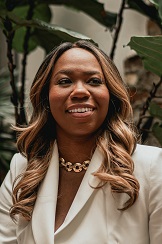 Kahlia Kéita (2008) and Carlito Umali (2008) met on the first day of Dr. June Johnson Bube’s American literature class. As Carlito recalls, “I saw Kahlia and thought, ‘Girl, I’m going to sit next to you!’” They were the only two students of color in the classroom that day, and at times, Seattle University seemed “very white.” They bonded when Dr. Johnson took the class to a performance of Native Son at the Intiman Theater, and those early experiences have led to a friendship that is still going strong fifteen years later. As Kahlia put it, “Carlito and I come from very different backgrounds, but our shared interest of literature opened the door for other connections, a huge one being our similar experiences as children of immigrant parents, which allowed us to effortlessly relate to each other and be a support system.”
Kahlia Kéita (2008) and Carlito Umali (2008) met on the first day of Dr. June Johnson Bube’s American literature class. As Carlito recalls, “I saw Kahlia and thought, ‘Girl, I’m going to sit next to you!’” They were the only two students of color in the classroom that day, and at times, Seattle University seemed “very white.” They bonded when Dr. Johnson took the class to a performance of Native Son at the Intiman Theater, and those early experiences have led to a friendship that is still going strong fifteen years later. As Kahlia put it, “Carlito and I come from very different backgrounds, but our shared interest of literature opened the door for other connections, a huge one being our similar experiences as children of immigrant parents, which allowed us to effortlessly relate to each other and be a support system.”
About five years ago, they started talking about how they could give back to the department and school that had been so influential in helping them discern their paths and develop their sense of purpose. This fall, they reached out to department chair Dr. Charles Tung with a proposal to create a fund to help students like themselves—African-American or Asian-American and first-generation citizens or first-generation college students—find their community. “We acknowledge that our journey was not lonely. If we can provide the same support we received to others who walk in similar shoes, then it is our responsibility to make sure that the path is a little less rocky for them,” says Kahlia.
Kahlia is the only daughter of immigrant parents from Jamaica and Guinea. She was born and raised in Phoenix, Arizona, and she was one of only three students from her high school graduating class who attended university out of state. At Seattle U, she was a Costco Scholar and threw shot put and discus for the Track and Field team in addition to her studies. Initially, she had planned to study Political Science and pre-law, but after reading Richard Wright’s Native Son, she changed her major to English. She says of the major, “My English coursework was THE foundation to the skills I now have as a professional. I learned how to think critically… I [also] learned the value and power of narrative/story, which I can say has helped me to leverage my abilities as a professional in a distinct way that many others don’t do or can’t do.”
After graduation, Kahlia started law school, but her interest in her medical ethics classes drew her to pursue a different path. She earned a Master’s degree in Bioethics and Health Policy from Loyola University Chicago, then moved to Washington D.C. with her then-partner, now-husband. She returned to her law studies at the University of the District of Columbia while working full-time as an educator in clinical ethics for a DC-area hospital. In that role, doctors and nurses would call on her when faced with difficult questions around end-of-life care, surrogate decision making, interpretation of advance directives, and when to withdraw or withhold care. The arrival of COVID in the United States made many of these questions even more urgent, as moral distress, burnout, and fear of catching or spreading the virus began to worry healthcare providers. Having completed her law degree, Kahlia left the hospital last May and now works as a risk consultant for a medical insurance company, supporting physicians in reducing and mitigating the risk of malpractice as they provide care for their patients.
For our current majors, she offers this advice: “Take the time to reflect early on… Do not be discouraged that your gifts do not fall into a specific job or career path suited for an ‘English major.’ Rather use your creativity to leverage other skill sets to get the job you want or have it created.” To this end, she plans to launch a blog this spring that will tell the stories of “multi-talented people and their projects that are outside the realm of their career/profession.” As if she weren’t busy enough, Kahlia also enjoys fashion and has begun helping people discover their style by editing their wardrobe and acting as a personal shopper. (She styled the outfit Carlito is wearing in his photo!)
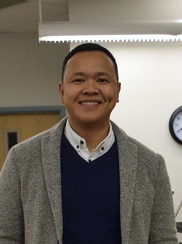
Carlito was born in the Philippines and immigrated with his parents to Seattle. He graduated from Renton High School and first attended Seattle Central College before transferring to SU to study English and become a teacher. He chose SU because he wanted the mentorship and challenge that a small liberal arts college could provide. He found mentors, including Dr. Tung, Dr. Gabriella Gutierrez y Muhs, Dr. Tim Wilson, and Fr. David Leigh. He says of his English experience, “After all of the readings and the ten-page papers, I felt super prepared for the world. The standards that the department had for us and the fact that the professors knew us and really responded to our work prepared us.” At graduation, Carlito was the 2008 commencement speaker.
He eventually returned to SU to earn his Master’s in Teaching and is a National Board-Certified Teacher. He has taught middle- and high-school English, Social Studies, Science, and STEM. He first taught and is now an instructional coach at TAF Academy, a sixth-through-twelfth grade STEM school that is both a public school in Federal Way and a partnership with a nonprofit. The small-school setting teaches kids, mostly low-income students of color, through project-based learning and STEM curriculum. When asked how the humanities and his English training aid in his work toward educational justice, Carlito says, “If we don’t set kids up with a solid foundation of reading, critical thinking, and inquiry, all of their work is for nothing—they won’t be able to solve those problems [that STEM poses].” He is currently pursuing his administrator credentials through Western Washington University. He loves working closely with families and with the teachers who have stayed with TAF for many years, where he and they feel like they are part of a whole system moving toward justice.
This sense of community is what Kahlia and Carlito hope to foster through their donation to the department. Both of them stressed that even smaller efforts have the power to make a difference. While funding a scholarship seemed out of reach for them as they were pursuing their education and establishing their careers, Kahlia and Carlito have set up a monthly giving program that will make $1,500 available to the department by the summer, and those funds can be used next fall to start making a difference in students’ lives. They found that the process to start giving was really easy, and it doesn’t take much for those funds to begin to add up and support meaningful programming. As they proved when they went to the Intiman together all those years ago, a free ticket or some free food might be all it takes for students to form impactful relationships.
Carlito plans to work with Dr. Tung to disburse the funds, while Kahlia will continue to work on fundraising. They hope this action will spark something bigger and allow for an ongoing commitment to the English department. Kahlia stresses that the gifts don’t have to be monetary—you can also provide your time by offering to be a mentor or host a coffee talk with a current student. But if you are able to give, says Carlito, “I work with teachers all day, and I have seen in my work what they can do for students with just a little more support.”
You can help Carlito and Kahlia reach their goal! They are asking for 15 donors to contribute $100 or more on February 25, during the 24-hour Seattle U Gives campaign, as a match to their $1,500 gift. Donate here by choosing the English Department Fund from the dropdown list.
Keith Beasley on Self-Publishing His Novel, Bone Flake
By Dr. Hilary Hawley
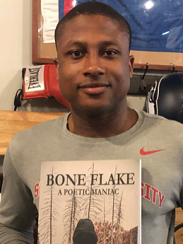 Keith Beasley’s (2019) path to publishing his recent novel, Bone Flake: A Poetic Maniac, was anything but traditional. The St. Louis native had always wanted to be an author—he was a big fan of Stan Lee, the Fantastic Four, and the Punisher—but he hid this interest from other kids so as not to be called “lame.”
Keith Beasley’s (2019) path to publishing his recent novel, Bone Flake: A Poetic Maniac, was anything but traditional. The St. Louis native had always wanted to be an author—he was a big fan of Stan Lee, the Fantastic Four, and the Punisher—but he hid this interest from other kids so as not to be called “lame.”
Beasley came to Seattle University as an English major and cites Dr. Mary-Antoinette Smith’s class as one he really enjoyed. He also participated on the SU track team and served in the ROTC, but it was an internship at a radio station on Rainier Avenue that proved to be the most influential. He worked on a weekly news show in sports coverage and production, and the DJs, rappers, and performers he met through the station inspired him. He changed his major to Communications, and upon graduation, he intended to study for law school. But his dad encouraged him to start writing again, so one month after graduation, he began his novel. He wrote steadily for five months, and over the next several months he hired proofreaders and editors, culminating in the self-publication of Bone Flake in 2020 at the age of 26. He credits his work ethic and ability to be versatile for this success, but also warns that it takes money to pursue this route to publication.
The book, which Beasley describes as a blend of mystery and thriller, poetry and fiction, draws upon his love of superheroes, as well as artists like Drake, J Cole, Kendrick Lamar, 2Pac, and Jay-Z. Beasley says that while many writers read books to get their influences, he listens to rap, reads mostly nonfiction, and draws on the life experiences and the real-world (and therefore sometimes foul) language of people he knows. The novel’s protagonist is a young adult who receives superpowers in exchange for his release from jail but soon finds out the consequences of “teaming up with wolves dressed as sheep.” Each chapter is followed by a poetic interlude to represent what is happening in “Bone’s dome.”
During the pandemic, he has been called up to active Army duty and is currently helping with food bank distribution in South King County. He is at work on a second novel with a superhero protagonist, this time featuring a teenage girl whose mom was a cop killed in action and whose powers come from the owner of the local hair salon. He intends to return to news reporting and would love to have his own show one day. We can’t wait to see what Beasley does next!
Department News
Creative Writing Annual Update
By Dr. Susan Meyers, Director of Creative Writing
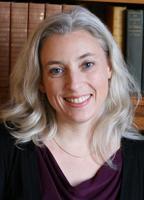 This year we welcomed our newest creative writing faculty member, Dr. Serena Chopra. She not only comes with a wealth of creative talent and craft knowledge. She also comes with the generous spirit to nurture our student body and is looking forward to encouraging their creative spirit for years to come. Welcome, Dr. Serena Chopra!
This year we welcomed our newest creative writing faculty member, Dr. Serena Chopra. She not only comes with a wealth of creative talent and craft knowledge. She also comes with the generous spirit to nurture our student body and is looking forward to encouraging their creative spirit for years to come. Welcome, Dr. Serena Chopra!
Reagan Jackson hosted a wonderful Winter Quarter course, “The Mix Tape Memoir,” that was well-received by our faculty and beloved by her students. The final oral presentations culminated a vibrant, self-reflective, and community-centered quarter for the class.
The first event in the Encompass Reading Series featuring prominent local and national writers of color launched Winter Quarter. Students who attended were treated to insight from Claudia Castro Luna and Mimi Lok, as well as free copies of Mimi Lok's critically acclaimed collection of stories.
CW majors participated in a number of internships across the academic year, from the institutionally housed Big Fiction Magazine to the international organization Seattle City of Literature. Our students explored the wider literary community to contribute their talents in meaningful ways.
In courses like “Digital Fiction” and “Mix Tape Memoir” to “Documentary Poetics” and “Playwriting,” our creative writing seniors produced work that was assertive in its craft, personal in nature, and challenging in form. They produced websites that explored the nature of fictional narratives and the ethics around how we present ourselves and our stories in the digital environment.
Among our alumni, Max Delsohn began the creative nonfiction MFA program at Ohio State University and Emily Mundy began her poetry MFA at the University of Washington-Bothell. Finally, our faculty have likewise enjoyed a productive year: Professor Juan Reyes published several recent stories and essays; Dr. Serena Chopra published a poem in the upcoming anthology, Alone Together: Love, Grief and Comfort During Covid 19, and co-directed No Place to Go, a COVID-friendly queer haunted house in Denver this past October; while Dr. Susan Meyers had an essay in the latest issue of Snapdragon: A Journal of Art and Healing and served as visiting writer this past year at Monson Arts, Virginia Center for the Creative Arts, and Green Olive Arts in Tetuan, Morocco.
Fragments
Fragments student literary journal accomplished so much in light of our social distance learning environment and one of the most politically dynamic periods in recent history. They transitioned their annual print publication to digital and produced one of the most memorable issues to date, called “Interlude,” As the student editors put it in their introduction, “we had no idea how relevant explorations of interlude would be at the time of publication. We find ourselves collectively in a period of transition, of disruption, where nothing is certain but the sound of our own voices calling out for one another to hear.” You can access it at www.sufragments.com
Writing Center Annual Update
By Dr. Hidy Basta, Director of the Writing Center
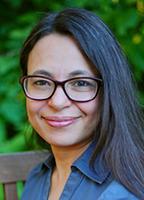 Words can’t do justice to the experience of the Writing Center in AY 2019-2020. I’m deeply grateful for the amazing work our staff did toward supporting students and reaching out in the midst of a pandemic and in the middle of a heightened experience of racial injustice.
Words can’t do justice to the experience of the Writing Center in AY 2019-2020. I’m deeply grateful for the amazing work our staff did toward supporting students and reaching out in the midst of a pandemic and in the middle of a heightened experience of racial injustice.
With only one quarter of practice under their belt, the cohort of Fall 2019 switched to exclusively online consultations. I taught the incoming consultant education course online in Spring 20 as our team welcomed new consultants that they had not met in person except for the brief interview back in winter. We managed to figure out how to make the best out of Zoom and our online platform. The lead consultants established a thoughtful mentor/mentee program. Gradually, we rebuilt the aspects that we’ve missed the most in our day-to-day, in-person interaction. I’m most proud of the Zoom informal channel in lieu of the “back table space” in front of Dr. Alex Smith’s office. This channel was our experience of the intersection of intentional and casual conversations. Students supported one another with great music, heartening words, covered shifts, offers of technical support, and coming up with the next idea for a community day.
As the office assistants and the writing consultants negotiated their own challenging circumstances around their health and safety, studying online, and staying connected to their community, I was most impressed by the capacity they have built to reach out to other students. There was an acute awareness that as students miss out on in-person group work and experience studying in isolation, they can use the support of a writing consultant. Our desire was to reach out and explain that our services remain available through online tutorials and to demo different ways to access these services. In addition to sustaining the same level of support to students in one-to-one consultations, our staff expanded their work on Building Writing Resources, Social Media, Blog, and the Podcast, Hoo’s At the Writing Center. The topics range from technical writing tips, self-care strategies, negotiating identity and intersectionality, books we liked, short story discussions, and anti-racist work in the Writing Center, to a spooky story competition. Revisiting these spaces offers heartening ways to see how the community came together to respond to the emerging challenges with wisdom, humility, genuine interest, creativity, and resilience.
As we became increasingly troubled by the racial injustices, we worked on examining the discriminatory and White Supremacist practices grounded in our own Writing Center. We articulated our values and practices in an updated mission statement and core values. We have also engaged in professional development activities in reading and reflecting on anti-racist Writing Center pedagogies and Standardized Language Ideologies. In acknowledging that this work is a long journey and that we are only beginning to dare to ask difficult questions, we continue our reflective practices and hold space to collect feedback and to learn from it.
I am proud to be a part of this thoughtful, intentional, and dedicated community. This year offered a lot of challenges and opportunities to focus on what truly matters. I can’t think of a more intense experience of professional formation of our staff.
We are looking forward to the new projects and to expanding the ways we support our campus community. Meet our amazing staff and stay tuned with our news, events, and updates on our webpage, Facebook, and Instagram, @suwritingcenter.
Writing Studies Minor
By Dr. June Johnson Bube, Director of Writing Studies
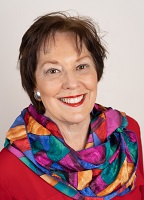
In 2019-2020, the minor continued its connection with the courses involved in the Seattle University Undergraduate Research Journal (SUURJ). Often, Writing Studies minors engage in that valuable training and experience of producing an online journal. Some students in the minor also work as writing consultants in the Writing Center. To extend the reach of the minor to students in other majors, I have continued to explore cross-listed courses with Communication and Media, Environmental Studies, Psychology, and Interdisciplinary Liberal Studies. Dr. Susan Meyers’ course “Grant Writing” (offered every other year) teaches foundational knowledge and skills in this important area. Students are also encouraged to seek out internships to acquire job skills.
In Spring 2020, a new course “Writing about Writing; Theory and Practice” incorporated theories from two key movements in the discipline, Teaching for Transfer (TFT) and Writing about Writing (WAW). Despite the challenges of the Zoom environment, students in this class produced creative, memorable multimodal compositions, including brochures, photo essays, zines, videos, and podcasts. As the marches against systemic racial injustice erupted in late May, several students chose to implement their rhetorical knowledge in public interventions; for example, Michael Pazen’s “Activism in the Digital Age: Purpose, Presence, and Performance” posted text and images online to expose the news media’s framing of the rallies and reflexively document his involvement in the protests calling for change. Other students applied theory in research projects (for example, analyzing the Writing Center as a discourse community) and in portfolios reflecting on varied samples of their past writing and their growth as writers.
The Writing Studies minor is a developing program. My foundational course in argumentation now devotes substantial course time to collaborative rhetoric, and courses such as “Genres of Western American Literature” (Winter 2021) will explore how genres enable stories and can disrupt and recast societal perceptions of the Western landscape and people.
The Writing Studies minor welcomes students no matter what career path they are envisioning!
Departmental Honors Program
By Dr. Nalini Iyer
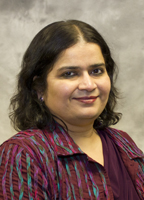 In AY 19-20, I had the pleasure of directing the Departmental Honors program while Dr. Molly Clark Hillard was on sabbatical. Our departmental Honors students were Mark Bautista, Emily Brown, Sydney Haas, Grace Hoglund, Hana Kirchoff, Lauren Louie, Annette Maxon, Ryan Thelin, and Jonathan Zuill. Six students explored such diverse literary critical topics as the influence of Adam Smith on Jane Austen, racism in Harry Potter novels, tyranny in Shakespeare’s plays, ekphrasis in Ishiguro’s work, textuality in Achebe’s novels, and contemporary adaptations of Victorian novels. Three students embarked on creative projects that included a novella on multi-generational trauma from Japanese internment, a work of speculative fiction, and a postmodern screenplay. My colleagues—Professors Hillard, Smith, Meyer, Reyes, Roberts, and Weihe—served as mentors. The Winter quarter course focused on research methods, workshopping and developing the projects, and discussions about the nature of research and the creative process. The students and I took a field trip to the University of Washington’s Suzzallo and Allen libraries, and I had the opportunity to share my joy of library work with them. Three of these students were also accepted to the NUCL conference hosted by the University of Portland.
In AY 19-20, I had the pleasure of directing the Departmental Honors program while Dr. Molly Clark Hillard was on sabbatical. Our departmental Honors students were Mark Bautista, Emily Brown, Sydney Haas, Grace Hoglund, Hana Kirchoff, Lauren Louie, Annette Maxon, Ryan Thelin, and Jonathan Zuill. Six students explored such diverse literary critical topics as the influence of Adam Smith on Jane Austen, racism in Harry Potter novels, tyranny in Shakespeare’s plays, ekphrasis in Ishiguro’s work, textuality in Achebe’s novels, and contemporary adaptations of Victorian novels. Three students embarked on creative projects that included a novella on multi-generational trauma from Japanese internment, a work of speculative fiction, and a postmodern screenplay. My colleagues—Professors Hillard, Smith, Meyer, Reyes, Roberts, and Weihe—served as mentors. The Winter quarter course focused on research methods, workshopping and developing the projects, and discussions about the nature of research and the creative process. The students and I took a field trip to the University of Washington’s Suzzallo and Allen libraries, and I had the opportunity to share my joy of library work with them. Three of these students were also accepted to the NUCL conference hosted by the University of Portland.
None of us could have predicted how a microorganism could turn our worlds upside down. In the final weeks of Winter quarter, the university shifted to online teaching to protect the community from COVID-19; my honors students did amazing online presentations of their work while teaching me how to unmute myself or share a screen while I stumbled my way through adapting to Zoom. At the end of Winter quarter, I still thought we would be able to come back to in person classes and continue research as we understood it a few weeks later.
Unfortunately, the turn to in-person classes did not occur. These wonderful students suddenly found themselves faced with challenges to their education from moving homes to financial and health issues for themselves or their families. They had no access to physical library materials to continue their work as the university and the libraries had shut down physical access to material. Research and writing are often solitary activities and pandemic isolation made that harder, but the students met up online and continued to support each other through their projects. At the end of May, we had a virtual SUURA, the annual conference of undergraduate research at SU. Students uploaded video presentations to Canvas sites and we (faculty, students, family members) met in a Zoom roundtable to talk with them about their research experiences. As I worked my way through their videos on Canvas, I had tears running down my face—they had done such amazing work. Their projects had deepened, their ideas were innovative and original, and quite frankly, most of them were of graduate school quality. At a time when students and professors alike were struggling with academic life, they demonstrated resilience, grace, and commitment to excellence. I will never forget this journey we took together—it was transformative for all of us.
Seattle University Undergraduate Research Journal (SUURJ)
By Ella Campbell
In June of 2020, our team of student editors launched the fourth volume of Seattle University’s Undergraduate Research Journal (SUURJ). Throughout the year, we worked alongside a dedicated editorial board, wonderful faculty content editors, and talented student writers to bring forth the new issue of this online, open-access journal that is dedicated to amplifying the diverse and powerful voices of Seattle University’s undergraduate student body.
Volume 4 features student research that spans subject matters such as biology, art history, international studies, psychology, history, communications, English, and economics. While SUURJ does not select works based on a theme, many of this year’s pieces focused on representing marginalized communities and advocating for social change—ranging from studies of climate change to critiques of structural inequities around the world and right here at Seattle University. The authors of Volume 4 were not only writing about social change; through their work, they are creating it.
Our editorial team had the pleasure of welcoming Professors Hannah Tracy and Tara Roth as SUURJ’s co-chief faculty editors. Their dedication and guidance were an invaluable resource. Not only did they embrace the history of the journal started by Dr. Molly Clark Hillard, but they dedicated themselves to helping continue and shape SUURJ’s legacy.
Because of the work of the editors in each consecutive year, submissions to the journal continue to grow in number, and we are thrilled to have made our own contributions to the success of SUURJ. In coming years, we look forward to growing the journal and solidifying its role in our Seattle University community. Volume 4 truly speaks to our journal’s mission of providing a platform for students across disciplines to enter into larger academic conversations, and we are excited to see how Volume 5 continues to progress this mission.
Although our final quarter together as an editorial team was interrupted by the challenges that the world has been facing due to the coronavirus, SUURJ offered us a sense of stability and community. We hope that witnessing the integration of minds, majors, and passions will offer readers the same experience. In these uncertain times, it is vital to celebrate the accomplishments of our students. Therefore, this year’s journal has genuinely been a labor of love, passion, and collaboration.
Spotlight Event: “Critical Reflections on the Suffrage Centennial”
One of the major events put on by English this past year was “Critical Reflections on the Suffrage Centennial,” March 3, 2020 in Wyckoff Auditorium. Faculty members in English and Film Studies presented excerpts from important writing by leading feminists who represent markers in women’s creative production and historical participation in social change. Maria Bullon-Fernandez, Mary-Antoinette Smith, Serena Chopra, June Johnson Bube, and Kirsten Thompson shared in the presentations. The event featured a screening of Alice Guy-Blanches’s The Consequences of Feminism (1906). Kirsten Thompson showed a film of prominent women in New Zealand owning their leadership.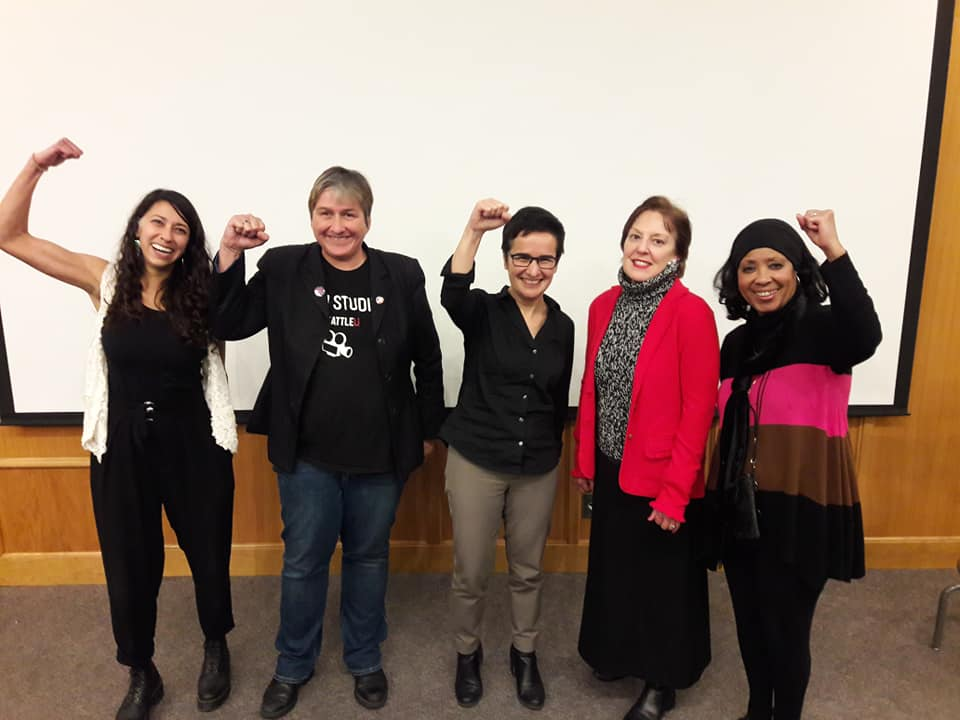
Film Studies Program Annual Update
By Dr. Kirsten Moana Thompson, Director of Film Studies
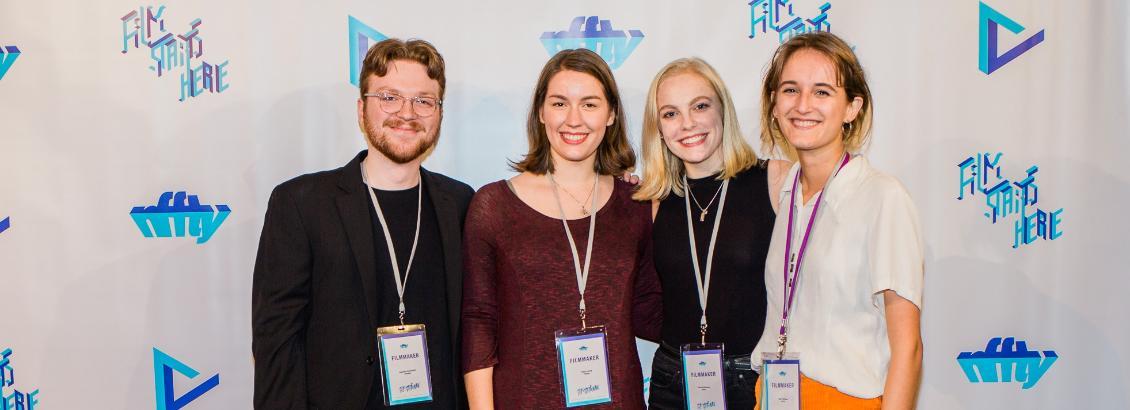
Figure 1: L to R: Matthew McDonald, Hailey McGill, Suzanne McAuley and Barbara Hoffman
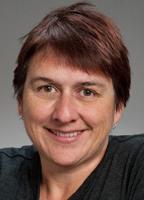 Film Studies is very proud of our successful students! Films by Seattle University students Barb Hoffman ('20), Hailey McGill ('21) and alum Mathew MacDonald ('19) screened at 2019's prestigious National Film Festival for Talented Youth (NFFTY), a Seattle-based international film festival for filmmakers under the age of 25. Hoffman's film Keys, McGill's film Melons and MacDonald's film Mormor were all produced in SU Film Studies courses. Selected from a pool of more than 1,200 submissions, they were screened among the 265 films by filmmakers from 24 states and 24 different countries. Based on the quality of Melons, McGill was also invited to apply for, and won, the T-Mobile Foundation's "T-Mobile Uplifting Voices Challenge." The challenge award included a $2,500 cash prize for McGill's next film project, and mentorship from T-Mobile Content Studio producers and creatives.
Film Studies is very proud of our successful students! Films by Seattle University students Barb Hoffman ('20), Hailey McGill ('21) and alum Mathew MacDonald ('19) screened at 2019's prestigious National Film Festival for Talented Youth (NFFTY), a Seattle-based international film festival for filmmakers under the age of 25. Hoffman's film Keys, McGill's film Melons and MacDonald's film Mormor were all produced in SU Film Studies courses. Selected from a pool of more than 1,200 submissions, they were screened among the 265 films by filmmakers from 24 states and 24 different countries. Based on the quality of Melons, McGill was also invited to apply for, and won, the T-Mobile Foundation's "T-Mobile Uplifting Voices Challenge." The challenge award included a $2,500 cash prize for McGill's next film project, and mentorship from T-Mobile Content Studio producers and creatives.
And in the 2020 NFFTY Film Festival a further three students (and alums) screened at this year's NFFTY: Abel Fong, (6.4.89) Christian Krantz (Face to Face) and Barb Hoffman (What We See in the Clouds). Abel's film was produced in Film 3, and Christian's film is from Experimental Film. In addition, Suzanne MacAuley's film, Hey Neighbor was shortlisted for an award at the COVIDeo-19 Film Festival, and Mary Lawrence's film, Am I alone Here? screened at the UK-based Lift Off Film Festival. Both were also produced in Alex Johnston's Experimental Film Class.
As part of Film's partnership with the Social Justice Film Festival, in October 2019, our students attended "Themes on Courage" panel screenings on campus, and for October 2020’s fully virtual festival, Dr. Thompson moderated the panel Transform: Another World is Possible, the Indigenous Futures Panel. For Tasveer Film Festival we hosted screenings on campus of Kaifinama (Sumantra Ghosal, 2019) and Reason (Anand Patwardhan, 2019) in September and Oct 2019. Dr. Thompson and Dr. Johnston also participated in a screening and panel discussion of Medicating Normal, Lynn Cunningham's new documentary about the opioid crisis and Big Pharma. Film's new professional development series Movie Bites continued in 2019-20, in which students get to talk about career paths with practicing professionals from the film industry over a pizza lunch. This year we hosted Academy Award winning Cinematographer Joan Churchill, Sound editor Alan Barker, and Animator Dustin Sweet.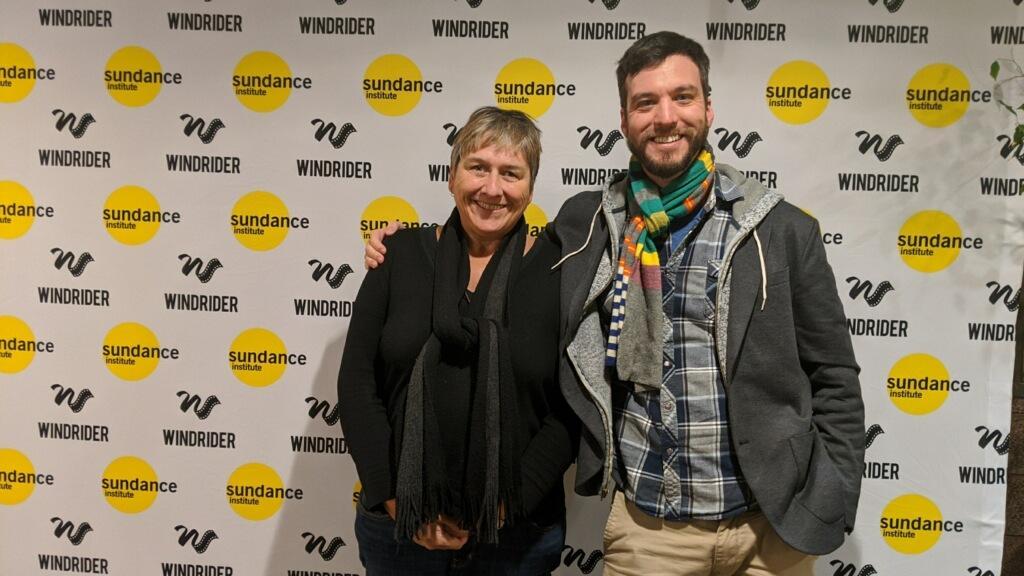
In January 2020 Dr. Thompson and Dr. Johnston went to Park City, Utah for the Sundance Film Festival as we laid the groundwork for a new annual student trip with official Sundance partner, the Windrider Film Festival. Amidst all the amazing new films and movie stars at Sundance, we also caught up with one of our recent star graduates Sydney Thun. Sydney has previously worked as a production assistant for Disney films and for television and is now working as a Script Consultant for HBO!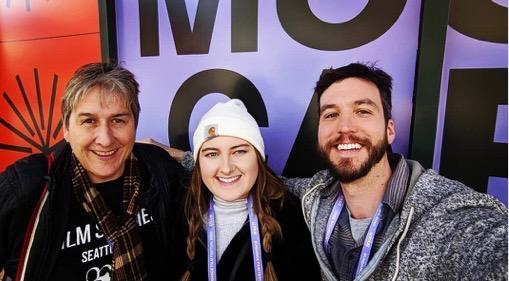
By mid-Winter 2020 COVID-19 struck and Film and Seattle U went mostly online, where we remain still. Film Festivals went fully virtual this year and our third partner, the Seattle International Film Festival, was sadly cancelled. But we look forward to returning to Sundance in 2022 with juniors and seniors for our inaugural Seattle U student trip.
The Film Studies program was created in 2009 by the hard work of English Professor Dr. Edwin Weihe. Together with Dr. Sean McDowell, Dr. Weihe worked tirelessly for many years to grow the Film program, and we are so grateful for their pioneering work. Dr. Kirsten Thompson became the new director in 2016 and was joined two years later by Dr. Alex Johnston and Dr. Benjamin Schultz-Figueroa who filled out the team with our colleagues, Justine Barda, Ben Stork, John Trafton, Craig Downing and Josefina Valenzuela-Cerda. The Film faculty recognizes with gratitude the hard work of all the faculty who have taught in the film program over the years, including award-winning filmmaker Georg Koszulinski, Catherine Clepper, Bob Cumbow, Richie Meyers and many others. Over the last eleven years we have educated more than seven hundred majors and over 4300 students in film, UCOR and cross-listed classes. Our students have gone on to graduate schools and to jobs in the film industry like HBO, Lifetime, and A& E, working as directors, editors, film festival programmers, social media marketers, and teachers. As Film leaves English and becomes an independent department in 2021, we look forward to our future with excitement.
Student and Faculty Awards
English Department students and faculty were the recipients of a number of prestigious awards in 2019-2020:
Brenalee Campbell, Interdisciplinary Liberal Studies and English/Creative Writing, won the College of Arts and Sciences Richard P. Hickey Award, given to an outstanding graduating student. Hickey award winners are presented with a medal and have the privilege of leading their class in the processional at graduation. The award honors the memory of Dr. Richard P. Hickey, professor of English, a beloved and respected teacher at Seattle University from 1947 until his death in 1968.
Megan Royce, Design and English, received the Anthony Buhr Award for Art and Art History, and Emily Brown, Theatre and English with Departmental Honors, received the Buhr Award for Performing Arts and Arts Leadership.
Sarah Dipprey, English and Mathematics, Annette Maxon, English with Departmental Honors, Andrea Fox, English, Creative Writing, and Anthony Bowmer, Film Studies, received the Fr. Alex MacDonald, S.J., Award. It is named in honor of former chair and distinguished professor Fr. MacDonald and is presented to the graduating student with the highest GPA in the major.
The English and Creative Writing students who graduated with Departmental Honors included Mark Bautista, Emily Brown, Sydney Haas, Grace Hoglund, Hana Kirchoff, Lauren Louie, Annette Maxon, Ryan Thelin, and Jonathan Zuill.
Jennifer Schulz, faculty in English, Interdisciplinary Liberal Studies, and Psychology, received the 2020 Teacher of the Year award from the Student Executive Council. Students in Arts and Sciences provide the nominations, and the award honors “exceptional contributions made towards the intellectual and personal growth of Seattle University students.
Hidy Basta received the College of Arts and Sciences Outstanding Contract Faculty Award.
Maria Bullón Fernández shared the College of Arts and Sciences Outstanding Service Award with her colleague Dr. Maureen Feit for their work on the College Strategic Plan.
Hannah Tracy received the Dean’s Award for the College of Arts and Sciences for her work with the Faculty-Staff Senate.
Kirsten Thompson was one of the recipients of the inaugural Shine Awards: Championing Professional Formation from the Career Engagement Office.
Andrew Tadie was awarded the rank of Professor Emeritus.
Sean McDowell’s photo “Dream Another World” won the faculty award category in the 2019-2020 Imagining the World Photography Competition.
Good News
Student and Alumni News
Though the annual Northwest Undergraduate Conference on Literature (NUCL) was cancelled because of the pandemic, students who had papers accepted to the conference included Jonathan Zuill, Hana Kirchoff, Annette Maxon, Ella Campbell, Laurel Petrik, Anna Petgrave, and Sydney Haas.
Emily Mundy has been accepted to University of Washington-Bothell’s MFA program in Poetry.
Madeline Corbin and Annette Maxon (2020) participated in a Columbia University Publishing Course, a rigorous six-week summer program that prepares its students for a career in publishing.
Camille Tabari (2019) has been accepted to law school at University of California, Berkeley and plans to begin her studies in Fall 2021.
Nigel Stanford (Magna Cum Laude, 2012) has been accepted to Lewis & Clark Graduate School of Education and Counseling with the goal of teaching math.
Film Studies and Creative Writing graduate Sydney Thun (2019) is working as a Script Consultant for HBO.
Brandon Bassler (2019) has begun work at Lifetime Television as a Publicity Assistant.
Emma Cooney (2019) works at an editing studio in Manhattan specializing in documentary film and advertising. She plans to attend the School of Visual Studies.
Brennan Bunn (2019) has been splitting his days between producing short videos for the King County District Council and the Seattle Housing Authority.
Nick Stinehour is working toward his MA in English at Boston College.
Max Delsohn is working toward an MFA at Ohio State University.
Aidan Avery is working toward an MFA at the University of Arizona.
Ethan Purcell is a fellow for Saga Education as part of Americorps. He is working in Chicago as a classroom tutor.
Faculty News
Hidy Basta’s article “The Multilingual Turn in Tutor Education Course” has been published in The Canadian Journal for Studies in Discourse and Writing. The article focuses on the work done in her ENGL 3090 Tutoring Writing: Theory and Practice. She is also scheduled to present on a panel, “Teaching for Justice for Multilingual Writers” at 4Cs in 2021.
María Bullón-Fernández has been appointed Associate Dean of Arts and Humanities in the College of Arts and Sciences. She has also published an article, "Gower's Queer Poetics in the Mirour de l'Omme" in Accessus: A Journal of Premodern Literature and New Media.
Serena Chopra received a College of Arts and Sciences Faculty Research Fellowship for her project, “Poetry: Dayawati, Of Mercy.”
Loren Cressler published an article titled “Asinine Heroism and the Mediation of Empire in Chaucer, Marlowe, and Shakespeare” in MLQ.
John Englehardt, (2009) published his novel, Bloomland, which Kirkus voted one of the best books of 2019.
Carlyn Ferrari has published two essays: “Lessons from Anne Spencer” in CONSEQUENCE, and “You Need to Leave Now, Ma’am” in the Chronicle of Higher Education.
Bryn Gribben has published the poems “Sending Death Threats to Ted Hughes” in the Gyroscope Review, “Lost Boy, Found Drowned: A Ghazal” in Ephimiliar Journal, and “Dahlia” in Passengers.
Molly Clark Hillard has co-edited a special issue titled “Commitment” of Victorian Literature and Culture, for which she also contributed an article on Tess of the D’Urbervilles, racial violence, and the #MeToo movement. She had a second essay titled “Victorianism and Contemporary Literature” accepted to the Oxford Research Encyclopedia.
Nalini Iyer was appointed by the MLA to the standing committee on Literatures of the People of Color of the United States and Canada. The Committee on the Literatures of People of Color in the United States and Canada will develop projects designed to encourage dialogue across ethnic and racial boundaries and to promote intercultural perspectives on and comparative analyses of the literatures and languages of ethnic groups historically underrepresented in the United States and Canada. Her essay “Digital Subaltern Counterpublics and Muslim Women’s Resistance in Kamila Shamsie’s Home Fire and Samira Ahmed’s Internment” will appear in Tulsa Studies in Women’s Literature.
June Johnson Bube’s two articles on collaborative rhetoric appeared in print. She published “Overcoming Reader Resistance to Global Literature of Witness: Teaching Collaborative Listening Using The Devil’s Highway and What Is the What” in the March 2020 volume of College English. Her other article, “Reframing Communication from a ‘Message Delivery Stance’ to a ‘Listening/Learning Stance’: Developing a Collaborative Rhetoric Pedagogy as Preparation for Civic Engagement,” which has a rhetoric and composition slant, appeared in the spring volume of the Journal of Teaching Writing. She is continuing to pursue scholarly work on listening studies, reflexivity, and reflective writing.
Alex Johnston's film Evidence of the Evidence, which was previously selected for the prestigious Berlinale (Berlin International Film Festival), was also a finalist for two jury prizes in 2020: Best Documentary at the Mimesis Documentary Festival in Boulder, CO, and Best Experimental Film at the Dublin Independent Film Festival in Dublin, Ireland. He also has a chapter in an upcoming book about the filmmaker William Greaves and his Muhammad Ali documentary, The Fight, and explores the parallels between the director's experiences as an African-American filmmaker and Muhammad Ali's as a Civil Rights icon.
Kate Koppelman presented two papers at the International Congress on Medieval Studies, “Motherhood Interrupted: Bodies, Borders, and Chaucer’s Griselda,” in a “Chaucer and Trauma” session sponsored by the The Chaucer Review, and “Saint Daenerys: The Monstrosity of the Uncivil Saint” on a roundtable called “The Monstrous Woman and the Norms of Civility.”
Sean McDowell had two poems published in Scintilla, “Photogram” and “Driftwood.”
Allison Meyer’s book, Telltale Women: Chronicling Gender in Early Modern Historiography, has been published. In it, she “challenges established perceptions of source study, historiography, and the staging of gender politics in well-known drama by arguing that chronicles and political histories frequently value women’s political interventions and use narrative techniques to invest their voices with authority.” Her article “Bringing Down the Bard’s House: Pedagogy, Representation, and the All-Female Cast” was published in Pedagogy, and she received a College of Arts and Sciences Faculty Research Fellowship for her project, “Book Building and the Early Modern Construction of Religious Difference.”
Susan Meyers published an essay, “The Club,” in Snapdragon: A Journal of Art & Healing on seeking community (and finding a deeper sense of self) during difficult times.
Juan Reyes published a fiction piece titled “The Way It Ends” in Moss, and his essay, “When My Name is Jose” was re-featured in Nasiona as part of their online compendium “To the Border Crossers.”
Christina Roberts interviewed novelist Tommy Orange for Seattle Reads in Fall 2020. She has been asked by the Native Action Network to be part of the 2020-21 Legacy of Leadership Cohort, and she will serve as the Associate Director of Matteo Ricci Institute in addition to her leadership as the Director of the Indigenous Peoples Institute at Seattle University.
Benjamin Schultz-Figueroa has just completed work on scientific non-theatrical films for The Celluloid Specimen: Moving Image Research into Animal Life and his book will be published in February 2022 by University of California Press. He also published two essays, “Mediating Disease: Scientific Transcriptions of Covid-19 into Animal Models” with Sophia Gräfe in Pandemic Media and “Abandoned Aquariums: Online Animal Attractions During Quarantine” in the Journal of Environmental Media.
Mary-Antoinette Smith has two book chapters forthcoming. They are “Of Human Bondage: Recurrent Replications of Supplication, Enslavement, and Appeal from Antiquity through the Nineteenth Century” in Adaptation Before Cinema: Literary and Visual Convergence from Antiquity through the 19th Century. Eds. Lissette Lopez Szwydky and Glenn Jellenik (Palgrave 2021), and “Dickens Demystified: The Jesuitical Journey of Ebenezer Scrooge through the Spiritual Exercises of St. Ignatius of Loyola” which will be included in The Theological Dickens (Routledge 2021). She also received the ICTC Faculty Fellowship award for her project, “Introducing Ellen Tarry: African American Catholic Convert and Interracial Justice Advocate.”
Kirsten Thompson published Animation and Advertising (coedited with Malcolm Cook, Palgrave, 2019), the first anthology devoted to the fascinating world of sponsored animation. She was featured on the "Animation and Fantasy" Podcast, and also presented “Animated America: Animated Advertising from Times Square to Walt Disney” as part of Seattle University Lightning Research Talks. She also chaired "Kanaka Maoli Childhood, Epistemologies, and Futurity" at the American Studies Conference in Honolulu, Hawaii, and received a Summer Faculty fellowship for her work on animation and advertising, a Catholic course development grant. She has two book chapters forthcoming: "Disney, DuPont and Faber Birren: Hollywood and the Color Revolution" in Classical Hollywood Studies in the 21st Century, and “Tattooed Light and Embodied Design: Intersectional Surfaces in Moana” in Yours, Mine and Ours: Intersectional Spaces on Screen.
John Trafton has a book forthcoming from Wayne State Press: Movie-Made Los Angeles: The City of Angels and the Rise of American Film.
Charles Tung has two book chapters forthcoming: “Modernist Heterochrony and the Contemporary Big Clock” will appear in The Edinburgh Companion to Modernism and Technology, and “Out of Time and Going Sideways: John Wick, Time Traveler” will appear in The Worlds of John Wick, Studies in Fan Culture and Cultural Theory Series, Indiana UP. Another essay, “Time Machines and Timelapse Aesthetics in Anthropocenic Modernism,” has been published in the collection Timescales: Thinking across Ecological Temporalities.
Josefina Valenzuela Cerda's narrative experience The Circle is available on Oculus Go and was an official selection at the Sci-Fi & Fantasy: Genre Lab, and at the Los Angeles Lift-Off Film Festival.
Joshua Wilson and his wife Lisa welcomed son Jude in the summer of 2020. They also published Fred Moten’s most recent book, All That Beauty, and the most recent issue of their poetry journal The Volta.
